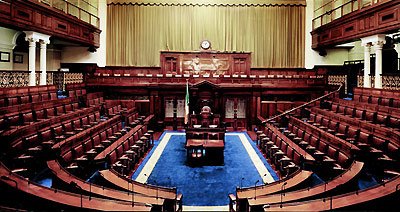The 2026 Government Budget has confirmed there will be a permanent 500€ reduction in Student Contribution fees for all Irish and EU undergraduate students. The fee reduction will take place at the start of the 2026/27 academic year.
This follows the recent one-off 1000 euro fee emergency reductions in the 2023 and 2025 budgets, aimed to alleviate students of “increased strain from cost of living”. The 500 euro reduction will be the first fee reduction of its kind since the “Free Fees Initiative” was put in place in 1996.
Minister Chambers called the new measure a means “to support students facing living expenses.”
In response to the temporary fee reduction replacement announcement Buster Whaley, Education Officer for the Trinity College Dublin Student’s Union (TCDSU/AMLCT) said the following in an interview with The University Times:
“It’s a convoluted way for the government to say ‘we’re raising your fees’…500 euro is a substantial amount of money…students are definitely going to feel that [sic] when this comes about in 2026.”
Additionally, thresholds for The Student Universal Support Ireland (SUSI) grants are also rising to 120,000. SUSI is a national grants scheme that provides financial assistance in the form of paying for fees, grants, or assisting with living costs for students that qualify for the scheme. With the new rise in the threshold the SUSI grant could potentially reach up to 20,000 more students than before.
For Irish and EU citizens Ireland is currently the most expensive place to study in the EU. The new student contribution fees of 2,500 euro brings Ireland just below the Netherlands (at 2,530 euro), however when coupled with living costs Ireland still takes the lead, with conservative estimates showing average living costs between 12 and 14 thousand euro per semester.
“That doesn’t surprise me at all, it’s a disgrace to this country and to the education system here”, said Whaley, in response to being told about Ireland’s status as the most expensive EU country to study in. “There’s no reason for it…Ireland has great schools and the opportunity should be there for students. Instead of embracing that, the government seems to be putting up barriers.”
Protestors from student unions around the country attended a demonstration against the fee raise yesterday outside the Higher Education building on Stephen’s Green ahead of the budget announcement. The protest follows months of backlash from students against what government sources called a “likely” change in student fees. The University Times has already reported that James Lawless, Minister for Further and Higher Education, Research, Innovation and Science, had cited the government’s plans to move away from “temporary measure[s]” for the cost of living crisis, instead moving to more “permanent” solutions.
Other highlights of the Budget plan include the hiring of up to 1,000 new gardaí and 860 special education teachers. The overall budget for childcare will be increased as well by half a billion euro overall. Despite this budget having the biggest capital investment in history of the State Spending overall has been cut by €1.1b, however the Irish Fiscal Authority (IFA) had called for more cuts in their suggestion of a more “modest” spending package.
“Framing advice for Budget 2026 is made more challenging by the high level of uncertainty faced at present,” said the latest statement from IFA in regards to the Budget. “With a strong economy it would be sensible for budgetary policy to be subtracting from demand in the economy in 2026…This with expected overruns would help keep inflation relatively low and reduce the risk of the economy overheating.”
Students may also see a significant ease on their own budgets as with the VAT decrease in hospitalities, pints, coffees and burritos might be a little cheaper. Cigarettes will, however, be more expensive. A 50 cent increase on cigarette prices will come with a new tax.








